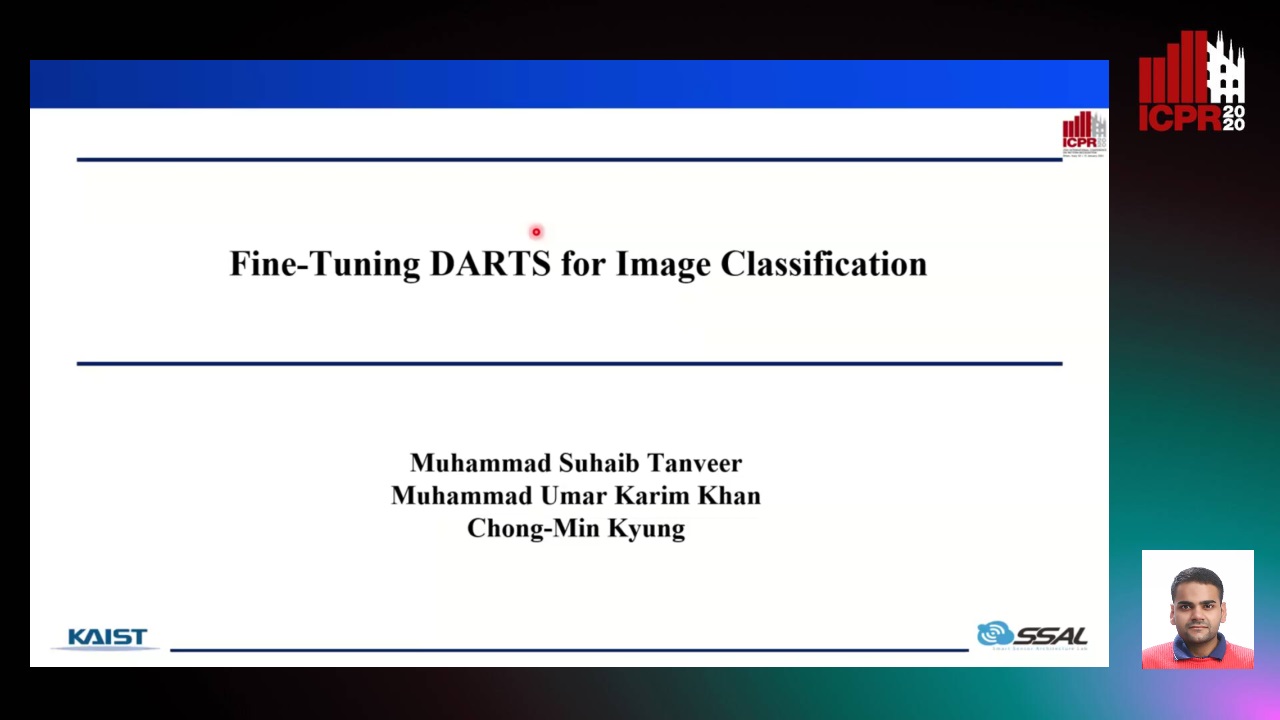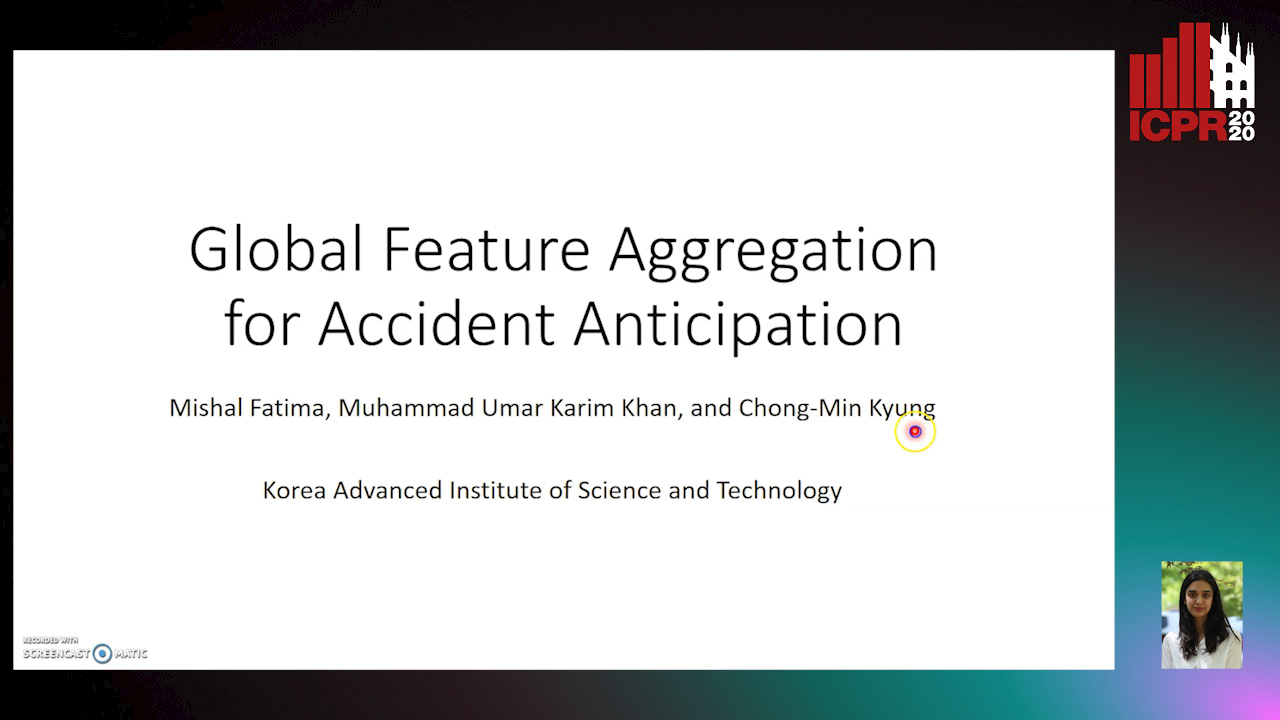Umar Karim Khan
Papers from this author
Fine-Tuning DARTS for Image Classification
Muhammad Suhaib Tanveer, Umar Karim Khan, Chong Min Kyung

Auto-TLDR; Fine-Tune Neural Architecture Search using Fixed Operations
Abstract Slides Poster Similar
Global Feature Aggregation for Accident Anticipation
Mishal Fatima, Umar Karim Khan, Chong Min Kyung

Auto-TLDR; Feature Aggregation for Predicting Accidents in Video Sequences